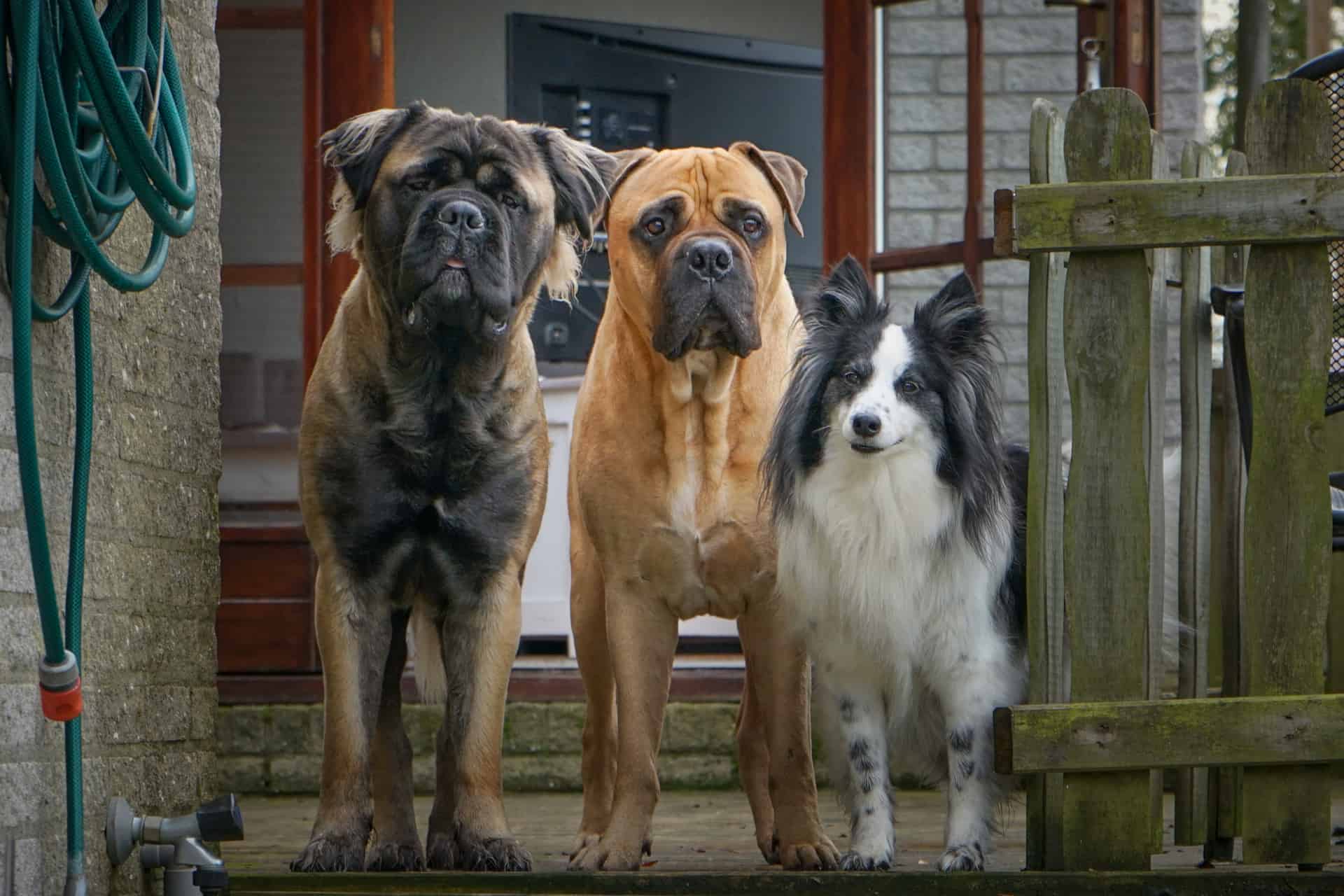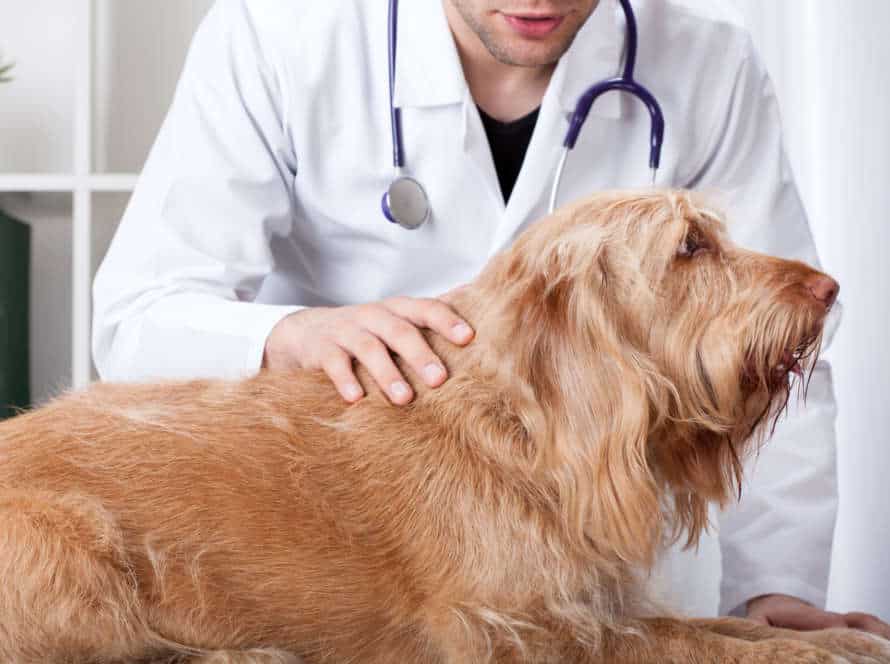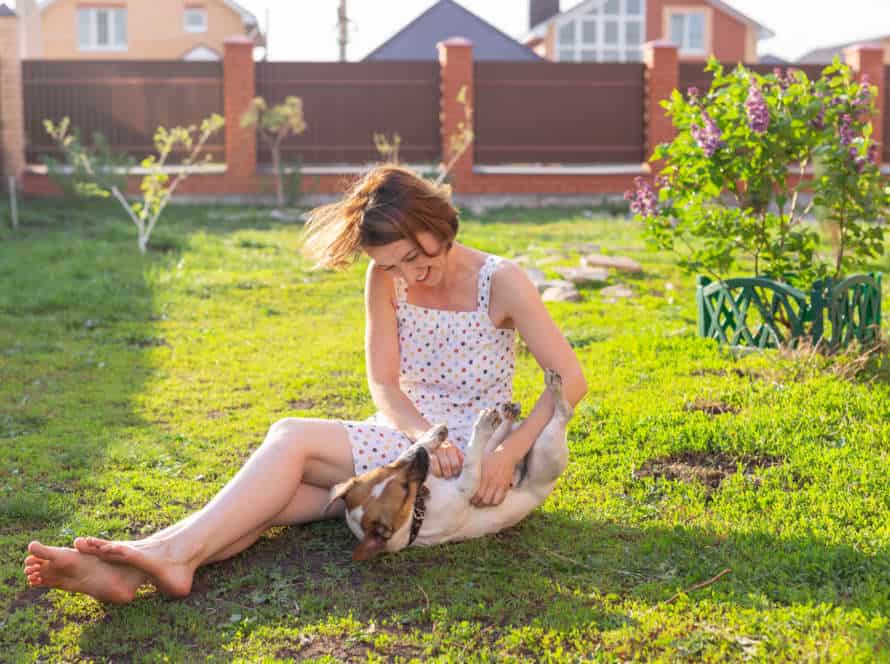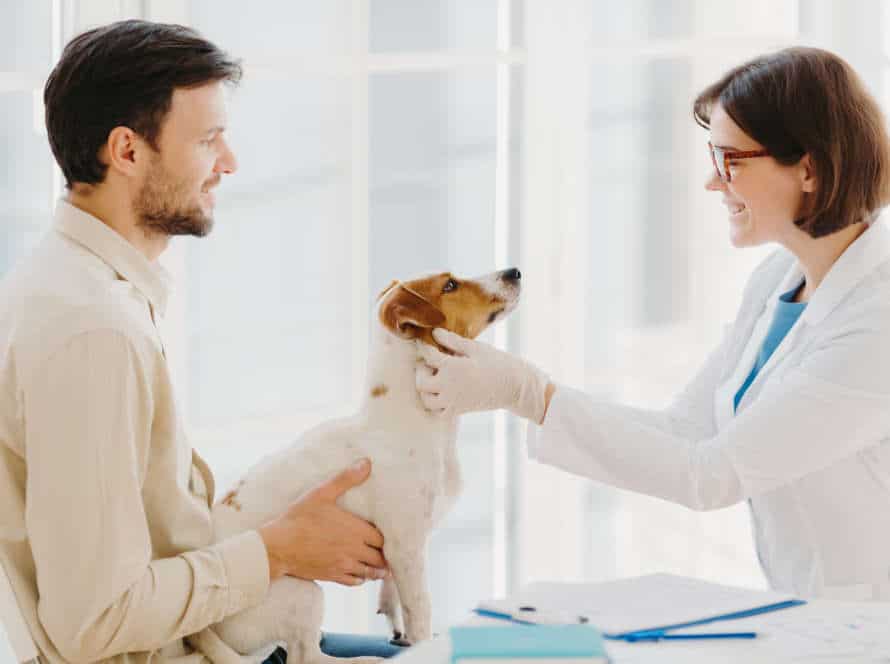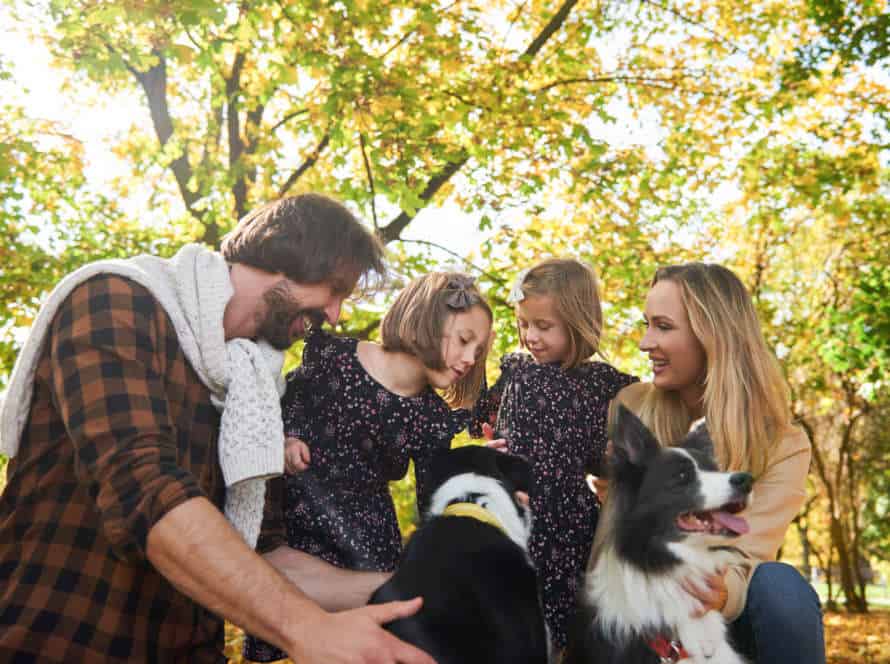Adopting a Rescue Dog: Preparing for Success
Bringing home a rescue pup can be a joy, but before doing so, there are a few things to consider.
- Research different rescue organisations to make sure it aligns with your values.
- Prepare your house for the pup’s arrival, with a comfy and safe place.
- Learn about the pup’s personality, habits and needs; tailor care accordingly.
- Invest in professional training to tackle any behavioural issues.
- Offer your pup plenty of love, patience and consistency.
Adopting a rescue pup is giving them a second chance at happiness, so preparation and care is key to success.
Pre-Adoption Preparation
Pre-adoption prep is a must! It will make sure you, your family, and your new rescue pup have a successful adoption.
To get ready to adopt, there are a few things to think about.
- Research breeds.
- Find a trusty rescue organization.
- Make sure you have the right home and resources for your pup.
Here are the key steps for pre-adoption prep:
Analyze your lifestyle and living environment
Adopting a rescue pup? Consider these first!
- Work Schedule: Long hours? Unpredictable? Can you give pup enough exercise, care and attention?
- Living Space: Secure and spacious? Apartment or small house? Dog need room to play and exercise.
- Family and Household Members: Children or other pets? Everyone ready to welcome and care for new member?
- Time and Energy: Ready to devote time and energy to train, socialize and care for pup? Adopting a rescue pup needs commitment and willingness.
Evaluate lifestyle and living environment to ensure you and pup are set for a successful future!
Determine your budget for a pet
Before you adopt a rescue pup, decide your budget for pet care. Bringing a new pup into your house comes with expenses, and planning for these costs in advance will help make the transition easier for you and your pup. Here are some costs to think about when you decide:
- Adoption fees
- Food and treats
- Toys and accessories
- Vet check-ups, vaccinations, and medical emergencies
- Licensing and registration fees
- Grooming and pet-sitting costs
By budgeting early, you can give your pup the best care and have a great life together.
Research dog breeds and temperaments
Researching dog breeds & temperaments is crucial when adopting a rescue pup. Each breed has different personalities & energy levels. To make sure the pup is a great fit for you, choose a breed that suits your lifestyle & character. Here are some tips:
- Make a list of breeds you like & research their temperaments, energy levels & exercise needs.
- Consider your living situation & if the breed is suitable for it – apartment or house with a garden?
- Be honest about your lifestyle & activity levels. If you can’t commit to long walks/runs every day, a high-energy pup may not be the best choice.
- Talk to your local animal rescue orgs & work with them to find a pup that fits you.
Finding the Right Rescue Dog
Discovering a rescue pup that fits your family can be overwhelming, yet also fulfilling! It’s crucial to investigate to discover the ideal fit for your way of life. That way, the adoption process goes without a hitch, and your pooch has the best chances for a successful transition. Here are some ideas on how to find your perfect rescue doggy!
Contact local shelters and rescue organizations
Contacting local shelters and rescue organizations is a must when seeking the perfect rescue dog. It’s critical to have an understanding of what you want and can provide. Here are some tips:
- Research to find out which dogs are available.
- Make a list of your desired breed, temperament, and size.
- Be honest about your living conditions, lifestyle, and schedule.
- Visit the shelter or organization, meet and spend time with the dogs.
- Once you’ve found the right dog, get supplies and create a comfy space.
Pro Tip: Adopting a rescue dog is a fulfilling experience but requires patience, commitment, and love. Put in time and effort for training, socializing, and caring for your pup.
Attend adoption events and visit shelters in-person
Attending adoption events and visiting shelters are great for finding the perfect pup for your fam. Here’s why:
- Events bring multiple rescue organizations and dogs together, making it simpler to pick the right one.
- Visiting the shelter allows you to meet the dogs, see their personalities, and ask questions about their background and medical history.
- Preparing for a successful adoption? Research breeds that fit with your lifestyle and fam dynamics.
- Get ready for a stable environment, exercise, and training for your new furry pal.
- Think about the time and money needed for adoption. Including costs for food, vet care, and grooming.
Ask questions and be thorough in your assessment of the dog’s needs and behavior
When adopting a rescue dog, ask questions and assess the pup’s needs and behavior carefully. Here are some tips to keep in mind:
- Ask about background and temperament. This will show if the dog is right for your family.
- Observe behavior around other pets and people. This will help you know if the pup fits your home.
- Take note of any special care, training, or medical needs. This will decide if you can provide the pup’s care.
- Spend time playing and interacting with the pup. This will create a connection and show the pup’s personality.
By asking questions and observing the pup, you’ll be able to make an informed decision and set yourself up for a successful adoption.
Welcoming Your New Rescue Dog Home
Adopting a rescue pup? Exciting! But, ensure you’re ready for the transition. Here are few things to consider for bringing your pup home:
- Make sure your pup is safe and happy.
- Prepare for the transition.
- Take necessary steps.
It’ll be a rewarding experience for you and your pet!
Create a safe and comfortable living space for your new dog
Adopting a rescue pup and bringing them home is exciting! But, it’s important to make a safe space for them. Here are some tips:
- Create a comfy sleeping spot – private and secure.
- Secure any dangerous items, like sharp stuff or chemicals.
- Get chew toys and interactive games – to keep them entertained and stop destructive behaviour.
- Make a routine – feeding times, play and potty breaks.
- Introduce them to one room at a time – so they don’t get too overwhelmed.
Pro Tip: Patience, consistency and lots of positive reinforcement will make them feel secure.
Establish a routine and schedule for feeding, walking, and other activities
Creating a regular schedule for feeding, walking, and other activities is key to making sure the rescue dog and owner transition smoothly. Here are some tips:
- Pick a feeding time and stay consistent. Vets suggest adult dogs get food twice a day and puppies three to four times, depending on their age and size.
- Set aside a daily time for walking. This is beneficial for physical exercise and mental stimulation, plus it’s a great way to bond with the dog.
- Plan out a schedule for other activities, like playtime, training, and grooming.
- Follow the routine as closely as possible. Dogs rely on consistency, so they’ll be more relaxed when they know what to expect.
- Be flexible and adaptable to the needs and personality of your dog.
With a good routine in place, it’ll be simpler to settle into life with your new rescue dog.
Begin training and socialization early and consistently
Training and socialization are essential for any rescue dog owner. Doing this early and consistently can help your pup settle into their new home and family and stop bad behavior from forming.
Here are some tips to keep in mind:
- Begin training and socializing as soon as possible – preferably in the first week of bringing your pup home.
- Reward good behavior with treats and kind words.
- Crate train your dog to give them a safe and secure space, and stop them from being destructive when they’re alone.
- Socialize your pup with other dogs and people. Start with low-stress situations and work up to busier spots.
- Consistency is key – be patient, persistent and don’t confuse your pup by changing the rules or expectations.
Challenges and Solutions for Rescue Dogs
Rescue dogs can have a past you may not know of. This can make it tricky to manage. Here, we’ll look at the difficulties that come with adopting a rescue pup and ideas for success. Get your new family member off to a good start!
Separation anxiety and other behavior issues
Rescue dogs often have separation anxiety and other behavior problems. But, with patience and training, many of these issues can be resolved.
Separation anxiety is when dogs feel tense and scared when left alone. This can lead to destroying things, barking or howling too much, or even pooping inside. To help, start by leaving your pup for short periods, and then gradually increase the time. Crate training can also help, by giving your dog a safe, cozy place.
Other common behavior issues in rescue dogs are aggression, fearfulness, shyness, and destructive behaviors. To sort this out, get professional help from a dog trainer or behaviorist. They will work out a tailored training program for your pet.
By providing proper training, socialization, and warmth, you can help your rescue dog succeed and live a happy life with your family.
Health concerns and medical care
When adopting a rescue pup, it is important to know any possible health issues they may have, as well as the challenges in providing proper medical care. Such health concerns and needs can involve:
- Previous injuries or traumas
- Chronic illnesses or conditions
- Parasites or infections
- Dental issues or teeth cleaning
- Vaccinations and preventative care
- Spaying or neutering
To handle these challenges, it’s recommended to:
- Schedule a visit to the vet for a full check-up
- Follow the vet’s recommendations for vaccines, preventative care, and treatment plans
- Have a routine for dental hygiene and check-ups
- Give them a healthy and balanced diet
- Exercise regularly and keep their weight in check
By being mindful of their health needs and providing necessary medical care, you can help ensure their long-term health and happiness.
Finding a reputable dog trainer or behaviorist
Getting a rescue pup can come with certain training and behavior difficulties. That’s why it’s essential to find a dependable dog trainer or behaviorist for success. Here are some tips to assist you in locating a competent trainer or behaviorist:
- Look for feedback and referrals from other dog owners.
- Verify their qualifications and background. Make sure they use humane, science-based training approaches.
- Inquire into their training and behavior modification strategies.
- Find someone who is understanding, informed, and can adjust their approach to your pup’s individual needs.
- Take into consideration their cost, availability, and location.
Remember, some behavior issues may necessitate more specialized help from a certified veterinary behaviorist. By devoting time and effort into finding the right trainer, you can help your rescue pup conquer obstacles and flourish in their new home.
Resources for New Rescue Dog Owners
Adopting a rescue dog can be gratifying – for both pet and owner. Preparing beforehand will give your pooch the best chance to settle in well. Here we look at what resources are available for new rescue dog owners. Acquiring these can help make the transition easier for both you and your four-legged friend.
Online resources and communities for support and advice
Getting a rescued pup can be fulfilling yet tough. Fortunately, there are loads of online resources and communities that can help new rescue dog owners. Here are some of the best ones:
- The Humane Society website: Get tons of info on adopting and caring for rescue dogs, including training, behaviour and health tips.
- Adopt-a-Pet.com: This site offers a full database of rescue dogs up for adoption, plus helpful articles on dog ownership.
- Reddit: Try subreddits on dog ownership, rescues and training for valuable advice from experienced dog owners.
- Facebook Groups: Join FB groups to ask questions, share experiences and connect with other pet owners.
These resources can help new rescue dog owners give a loving home to their furry friend.
Local organizations and events for dog owners
You, as a new rescue dog owner, have several local organizations and events available to you. These can be very useful in your pet ownership journey. Some of these include PetSmart, the Humane Society, Dog Parks and Animal Shelters.
PetSmart provides pet adoption services and dog training for all sizes and breeds. They also have ‘Doggie Day Camp’ for your pet’s fun and socialization.
The Humane Society offers many resources for pet owners. These include tips for pet care at home, animal welfare education, behavior training and adoption services.
Dog parks are great for pet owners to meet and socialize with other dog owners. Your rescue dog can also play in a safe and friendly environment.
Local animal shelters have lots of resources for pet owners. These include adoption programs, low-cost veterinary services and training programs. All of these resources can help you and your rescue dog have a great relationship and thrive in their new home.
Pet insurance and other financial resources for pet care.
Adopting a rescue dog can be very rewarding, but it is important to be aware of the financial responsibility that comes with pet ownership. New owners can access various financial resources including pet insurance, payment plans and financial assistance programs.
Pet insurance is a great option for those who can afford it. It helps pay for routine care and unexpected situations, like injuries and illnesses. Some policies even cover dental care and medication.
For those who cannot afford insurance, payment plans can be a great solution. Many veterinary clinics offer plans that allow you to pay for your pet’s care over time.
In some cases, financial assistance programs are available for low-income pet owners. Some organizations also offer help specifically for rescue dogs.
Researching and finding the best resources for your needs as a new owner is essential. Being prepared will ensure your furry friend receives the best care.
Frequently Asked Questions
Q: What should I expect when adopting a rescue dog?
A: When you adopt a rescue dog, you can expect a period of adjustment for both you and your new pet. Your dog may be nervous or skittish at first and require additional training and patience from you. However, rescue dogs are typically very grateful and eager to please their new owners.
Q: How can I prepare my home for my new rescue dog?
A: Before bringing your new dog home, make sure your home is safe and secure. Remove any hazardous objects and items that might be chewed or destroyed. Have a designated space for your new pet to sleep and eat, and make sure to provide toys and activities to keep them entertained.
Q: What kind of training should I provide for my new rescue dog?
A: It is important to provide basic obedience training, such as housebreaking, crate training, and socialization, to your new rescue dog. This will help them adapt to their new environment and become a well-adjusted member of your family. Consider enrolling them in formal obedience classes for additional training and socialization.
Q: What should I do if my rescue dog has behavioral issues?
A: Behavioral issues are common with rescue dogs, but they can be addressed with patience and training. Consult with your veterinarian or a professional dog trainer to help address any issues or develop a plan for your particular dog’s needs.
Q: What kind of medical care should I provide for my new rescue dog?
A: It is important to provide routine veterinary care for your rescue dog, including vaccinations, preventative medications, and regular check-ups. Consider getting your dog spayed or neutered if they have not already been, as this can improve their overall health and prevent unwanted litters.
Q: What should I do if my new rescue dog does not get along with my other pets?
A: Each pet’s personality is unique, and some dogs may not get along with others. Introduce your pets slowly and in a controlled environment, and seek the advice of a professional trainer if necessary. Keep them separated initially, and monitor their interactions closely to ensure everyone’s safety and happiness.

